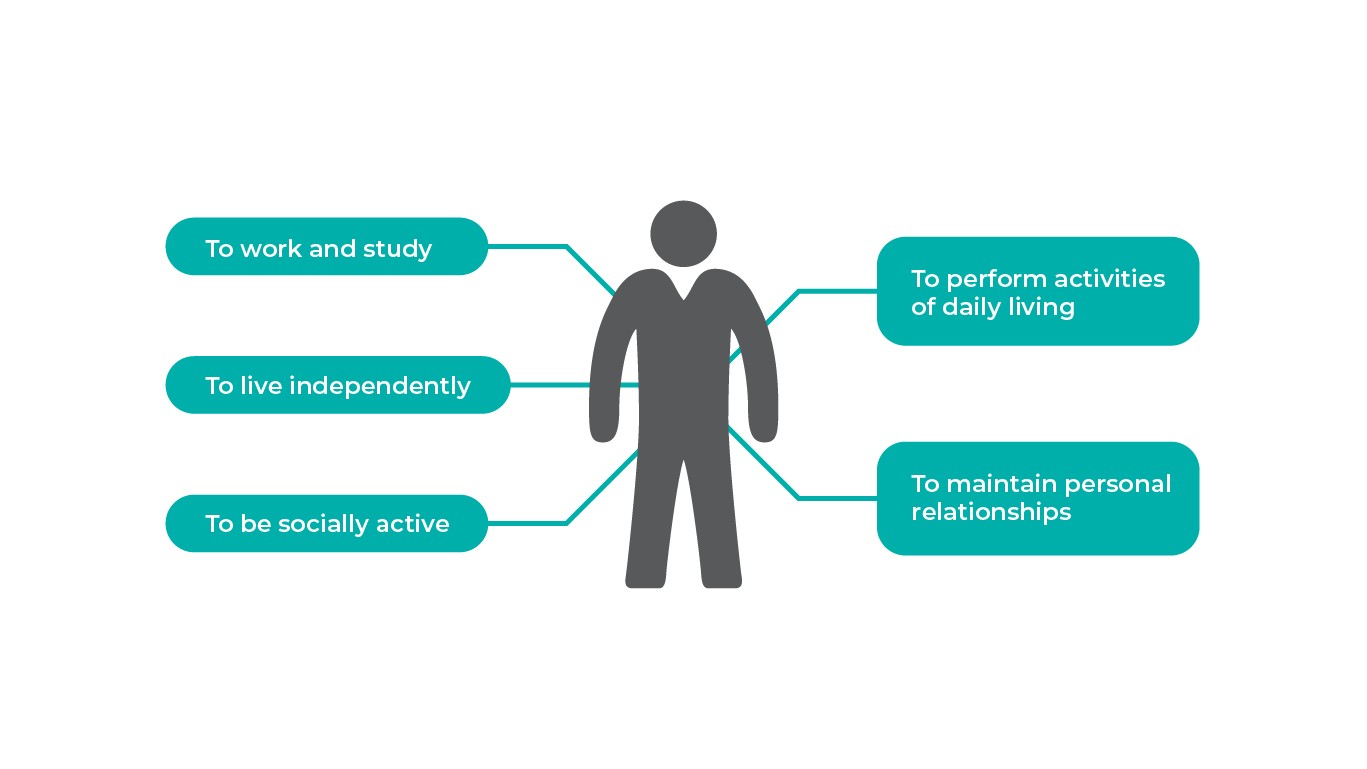Leading a healthy lifestyle is very important, especially if you are living with schizophrenia. Follow these tips to help look after yourself even when the going gets tough.

Try to get enough sleep
Sleeping well may help you to cope better with stressful situations. If you feel tired you may find it harder to manage your symptoms. Schizophrenia can affect your ability to sleep however you can help yourself by:
• Establishing a routine by going to bed and waking up at similar times each day
• Relaxing before you go to bed – try listening to music, breathing exercises, or meditation
• Avoiding bright screens such as laptops or phones
• Trying to resolve stress – consider writing down your problems or talking to a friend
Eat a healthy diet and take regular exercise
A balanced diet with lots of fruit and vegetables can help to keep you physically healthy. Eating well and taking regular exercise can reduce your risk of developing diabetes or cardiovascular disease. Eating regularly can also help to reduce the risk of psychosis caused by changes to your blood sugar levels.
Some studies have shown that reducing gluten intake may have a positive impact on schizophrenia symptoms however this needs more research. Also, ensuring you are intaking enough Vitamin C and E may also have a benefit.
Exercise is associated with improved quality of life in patients with schizophrenia. Exercise has been found to ameliorate many common factors contributing to poor health in people with schizophrenia. It also ameliorates brain function by improving memory, multi-tasking and planning, induces brain cell repair and lengthens the attention span.
Quit smoking
If you smoke, you are at higher risk of developing cancer, heart disease and stroke. Stopping smoking is hard, but there is a range of services available to help you quit. Quitting has a lot of benefits and can even improve your mental health if you have schizophrenia. However, if you are taking antipsychotic medications and want to quit smoking, it is very important to talk to your GP or psychiatrist before you stop.
Avoid drugs and alcohol
There may be times when you are tempted to turn to drugs and alcohol for your symptoms. On these occasions, it is important to remember that they are likely to make your symptoms worse in the long run. Alcohol is linked with depression and the risk of psychosis and illegal drugs may make your schizophrenia get worse. If you are taking antipsychotic medications, it is especially important to avoid drugs and alcohol as these could react badly with your medicine.
Manage your stress
Symptoms of schizophrenia may leave you feeling stressed and anxious. You can help to manage your stress by cutting down on the number of responsibilities that you have, talking to friends or family, or doing some exercise such as walking or swimming.
Maintain relationships
It is important to try and keep connected to your friends and family, as this can help you face the more difficult times. Feeling isolated may make the symptoms of schizophrenia worse so look to maintain relationships with those around you. If you do not feel like you have strong relationships, there are support services available that may be able to help.

Family and Caregivers: How to help
The evidence base confirms that patients with carer support can achieve superior outcomes compared to peers without, concerning lower rates of relapse and overall number and length of psychiatric admissions. Even if it has proved beneficial for improving patient outcomes, the caregiving role can impact negatively on carers’ health and well-being. For example, the carer can experience exhaustion, sleep disturbance depression, and anxiety. Adaptation to a healthy lifestyle and good quality of sleep is, therefore, necessary for caregivers, as well. It is also important to participate in psychoeducation programs and peer support groups, as they have been proven to improve family coping and carers’ general health.

Source: https://schizophrenia.life/public/understanding-schizophrenia/healthyliving/